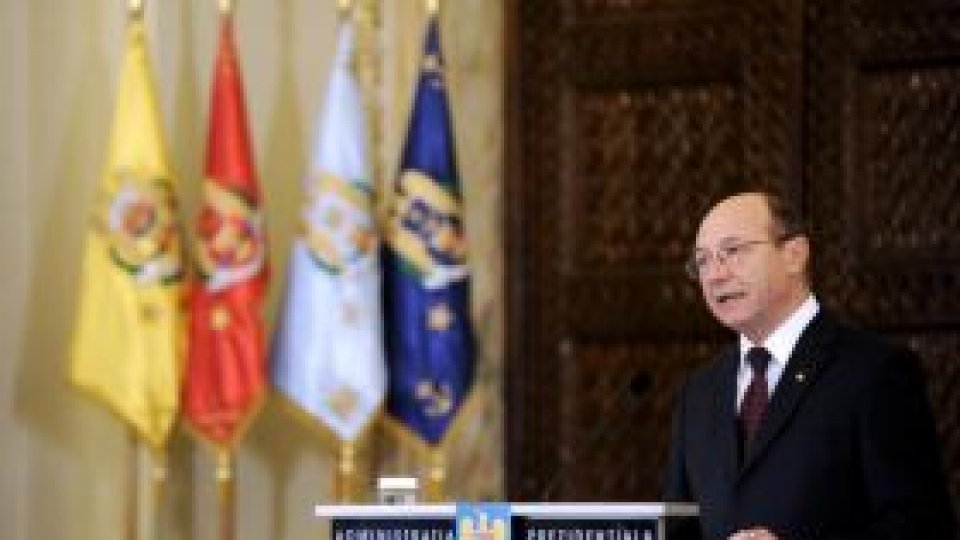"Reforms take priority" in 2012
President Traian Băsescu said he would continue to be an active partner of the government in the adoption of the measures provided by the agreements with the IMF, World Bank and EU.

20 Ianuarie 2012, 13:55
President Traian Băsescu said at the annual meeting with the ambassadors in Bucharest, that the state reforms would take priority in 2012, adding that he would continue to be an active partner of the government in the adoption of the measures envisaged by the agreements with the IMF, World Bank or EU.
‘The reforms will take priority in 2012, as well, and I will continue to be an active partner of the government in the adoption of the measures which we are committed to implement according to the agreements with the IMF, World Bank and EU’, President Băsescu said.
Traian Băsescu made reference to the entry into force of the Code of Civil Procedure in June, the completion of the new law on health and the measures to stimulate business.
The references to the government measures were owed to the protests in several cities in which the policy of austerity is being criticised and the resignations of Prime Minister and President are required.
He also spoke about the country's administrative reorganisation provided the situation allows it.
The President said that 2011 was a difficult year in which economic, financial, humanitarian and political crisis ‘put the governments and the world's population to the test again’.
Traian Băsescu said that ‘the main lesson people have learned is that a responsible attitude in political and economic crisis is fundamental’.
Referring to the situation in Romania, the president said that ‘despite its instability in 2009 and 2010 and the external economic instability, Romania has continued the institutional reforms, enabling the decrease of the below 3 percent of GDP by the end of 2012’.
Citing a survey of Eurostat, Traian Băsescu said that in 2011 Romania was the EU member state with the highest public investment rate, of 5.8 percent.
He gave assurances that in 2012 investments would remain a priority.
According to the president, the sums will be directed mainly to projects with direct impact on economic growth and employment.
On behalf of the diplomatic corps, the representative of the Vatican Apostolic Nuncio Francisco-Javier Lozano delivered a speech which showed that the human dignity and human rights might be sacrificed when taking the measures to address economic problems in different countries.
‘The poor and disadvantaged are the ones who always suffer first and the most. The danger is that human dignity and human rights could be sacrificed when taking the measures to address the problem in different countries’, the Apostolic Nuncio said in his speech.
Translated by: Denisse-Meda Bucura
MA Student MTTLC, Bucharest University














